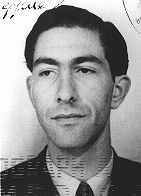You searched for: 【haigui.in】海归Returnees海归returnees加速器china加速器海归returnees加速器edge海归returnees加速器socks5海归returnees加速器proxy
<< Previous | Displaying results 81-90 of 119 for "【haigui.in】海归Returnees海归returnees加速器china加速器海归returnees加速器edge海归returnees加速器socks5海归returnees加速器proxy" | Next >>
-
Belle Mayer Zeck describes difficult working conditions during the Nuremberg trials
Oral HistoryBelle Mayer trained as a lawyer and worked for the General Counsel of the US Treasury, Foreign Funds Control Bureau. This bureau worked to enforce the Trading With the Enemy Act passed by Congress. In this capacity, Mayer became familiar with the German I. G. Farben chemical company, a large conglomerate that used forced labor during World War II. In 1945, Mayer was sent as a Department of Treasury representative to the postwar London Conference. She was present as representatives from the Allied nations…
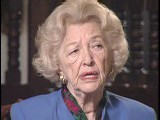
-
Charlene Schiff describes a clandestine school for children in the Horochow ghetto
Oral HistoryBoth of Charlene's parents were local Jewish community leaders, and the family was active in community life. Charlene's father was a professor of philosophy at the State University of Lvov. World War II began with the German invasion of Poland on September 1, 1939. Charlene's town was in the part of eastern Poland occupied by the Soviet Union under the German-Soviet Pact of August 1939. Under the Soviet occupation, the family remained in its home and Charlene's father continued to teach. The Germans…
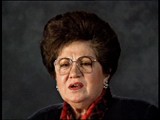
-
Charlene Schiff describes the German invasion of her town, Horochow, in the summer of 1941
Oral HistoryBoth of Charlene's parents were local Jewish community leaders, and the family was active in community life. Charlene's father was a professor of philosophy at the State University of Lvov. World War II began with the German invasion of Poland on September 1, 1939. Charlene's town was in the part of eastern Poland occupied by the Soviet Union under the German-Soviet Pact of August 1939. Under the Soviet occupation, the family remained in its home and Charlene's father continued to teach. The Germans…
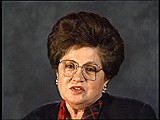
-
Charlene Schiff describes foraging for food in order to survive in forests after escaping from the Horochow ghetto
Oral HistoryBoth of Charlene's parents were local Jewish community leaders, and the family was active in community life. Charlene's father was a professor of philosophy at the State University of Lvov. World War II began with the German invasion of Poland on September 1, 1939. Charlene's town was in the part of eastern Poland occupied by the Soviet Union under the German-Soviet Pact of August 1939. Under the Soviet occupation, the family remained in its home and Charlene's father continued to teach. The Germans…
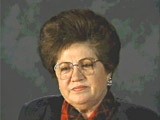
-
The Weimar Republic
ArticleThe Weimar Republic was a liberal democratic republic founded in Germany in the aftermath of WWI. Learn about the era’s political and economic crises and social trends.
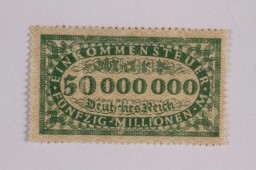
-
Lublin/Majdanek Concentration Camp: Conditions
ArticleIn 1940, the Nazis established Lublin (Majdanek) concentration camp in Lublin, Poland. Learn more about camp conditions.
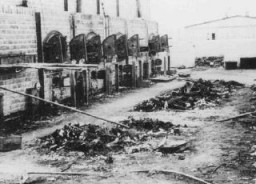
-
Oradour-sur-Glane
ArticleIn 1944, Waffen-SS troops massacred residents of Oradour-sur-Glane, a small village in France. Learn about the German occupation and destruction of the village.
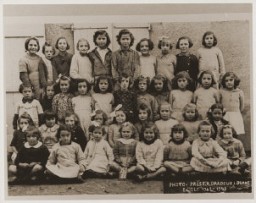
-
The Nazi Kripo (Criminal Police)
ArticleThe Nazi Kripo, or Criminal Police, was the detective force of Nazi Germany. During the Nazi regime and WWII, it became a key enforcer of policies based in Nazi ideology.
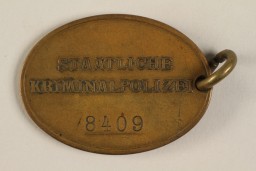
-
Oranienburg
ArticleThe Oranienburg concentration camp was established as one of the first concentration camps in Nazi Germany on March 21, 1933. Learn more
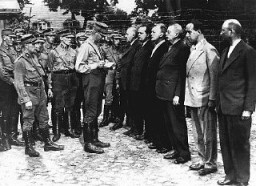
-
Ernest G. Heppner
ID CardErnest was one of three children born to a Jewish family in the commercial city of Breslau, which had one of the largest Jewish communities in Germany. His father, a World War I veteran, owned a factory that made matzah, the unleavened bread used during the Jewish holiday of Passover. Ernest was 12 when Hitler took power in 1933. 1933-39: Ernest often got in trouble at school because people called him names. "Christ-killer" and "your father kills Christian babies for Passover" were common taunts. Many…
